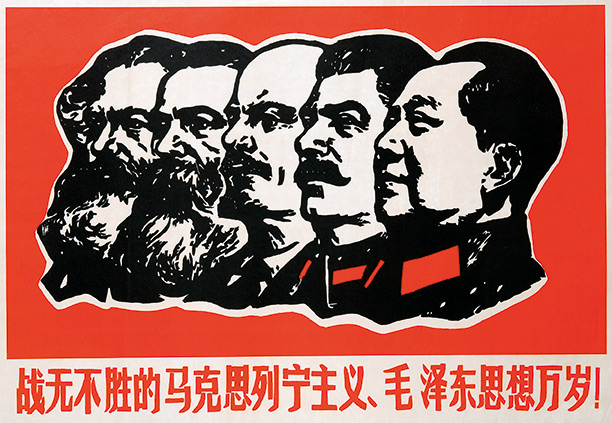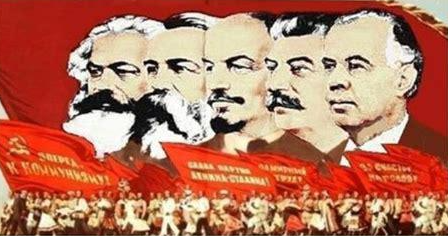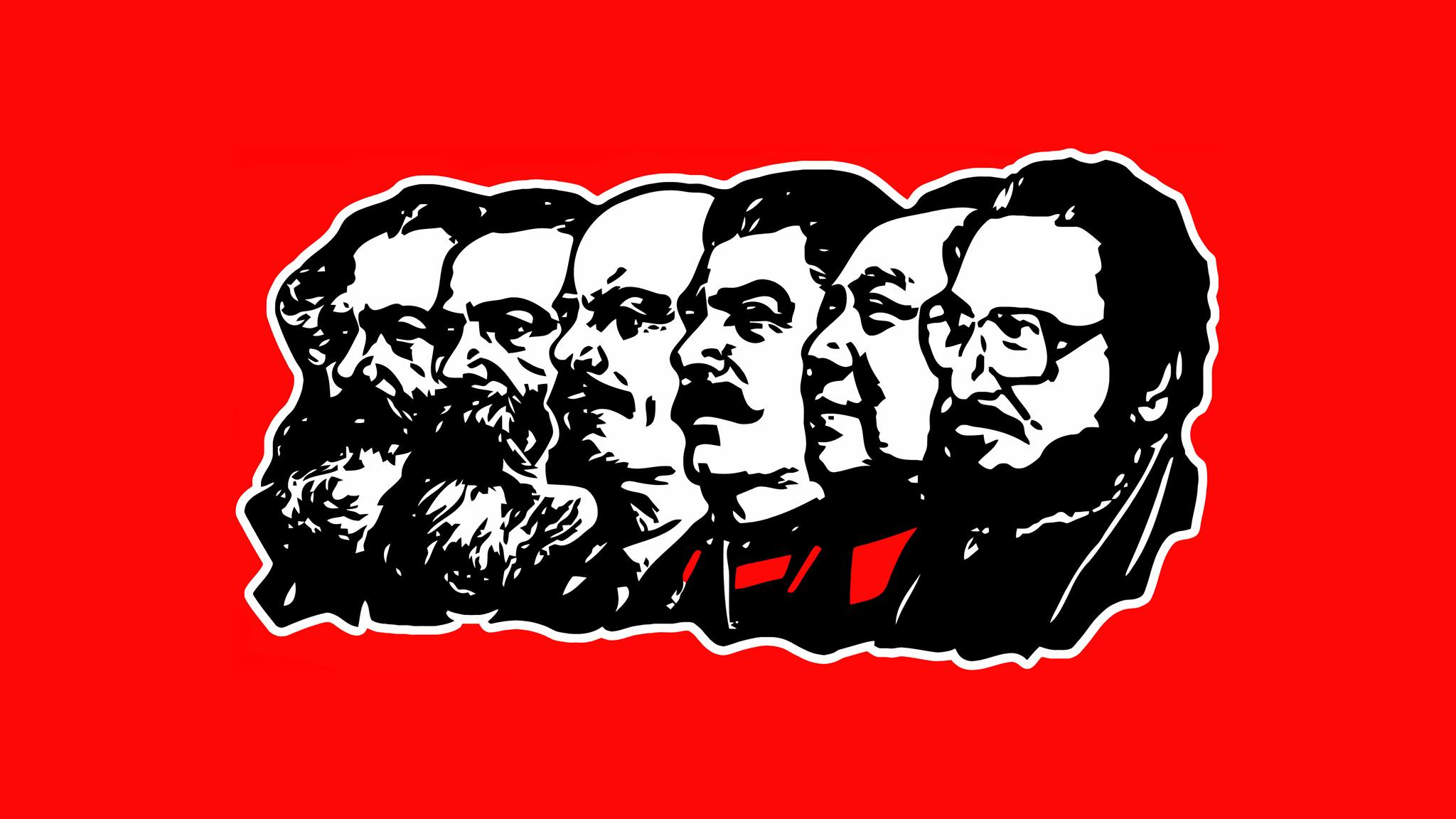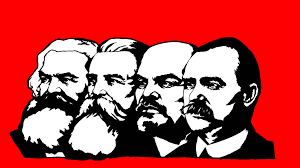More languages
More actions
Tags: mobile web edit mobile edit |
mNo edit summary Tag: Visual edit |
||
| (2 intermediate revisions by 2 users not shown) | |||
| Line 15: | Line 15: | ||
=== Use In Ireland === | === Use In Ireland === | ||
[[File:James connolly.png|thumb|The three heads | [[File:James connolly.png|thumb|The three heads of communism + James Conolly]] | ||
[[Irish Socialist | [[Irish Socialist Republican Party|Irish Socialist Republicans]] often include [[James Connolly]] after [[Marx]], [[Engels]], [[Lenin]] and sometimes [[Stalin]] and [[Mao]] depending on the user's ideological leanings. | ||
== References == | == References == | ||
<references /> | <references /> | ||
[[Category:Marxist symbols]] | [[Category:Marxist symbols]] | ||
Latest revision as of 17:09, 12 June 2024

The Five Heads of Communism is a Marxist-Leninist symbol that emphasizes the importance of Karl Marx, Friedrich Engels, Vladimir Lenin, Joseph Stalin, and Mao Zedong in their work developing Marxism-Leninism. Alternative versions known as the Three Heads and the Four Heads of Marxism exclude Stalin and/or Mao.[1][2]
Variations[edit | edit source]
Hoxhaism[edit | edit source]

Alternatively, the Five Classics of Marxism–Leninism replaces Mao with Enver Hoxha.[3]
Maoism[edit | edit source]

Maoists often add Chairman Gonzalo after Mao.
Trotskyism[edit | edit source]
Trotskyists include Leon Trotsky and exclude Stalin and Mao.
Use In Ireland[edit | edit source]

Irish Socialist Republicans often include James Connolly after Marx, Engels, Lenin and sometimes Stalin and Mao depending on the user's ideological leanings.
